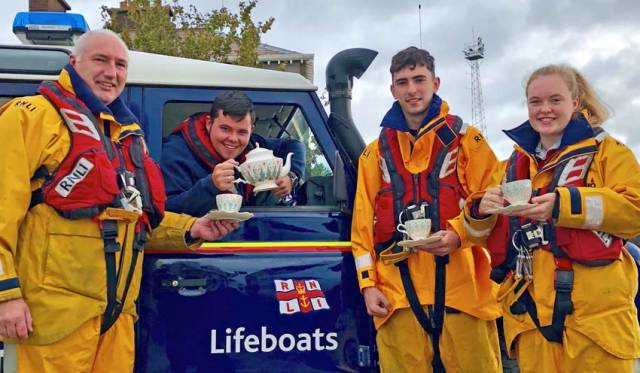#RNLI - Larne’s volunteer RNLI crew are throwing open the doors of the lifeboat station as they host a coffee morning to raise funds for Macmillan, the cancer support charity, from 10.30am to 2pm on Saturday 29 September.
The crew are already planning a ‘bake off’ to entice the public along and to dig deep for Macmillan.
There will also be tours of the station, demonstrations of its vital lifesaving kit and talks to give an insight into lifeboat launches in and around Larne.
Eleganze Hair & Beauty, Marty’s Catering, Curran Court Hotel and Allan Dorman & Son are among the local businesses that have already shown their support with raffle prizes for the day.
“This will be a fundraiser with a difference for us here,” said lifeboat mechanic Derek Rea. “As a charity we are thankful to the people of Larne for supporting the lifeboat but we also want to help others and raise funds for this worthy cause.
“There is hardly a person whose life has not been touched by cancer, either through battling it themselves or seeing someone they care about suffering with it. Support for cancer sufferers and research into treatment is ongoing and the Macmillan coffee morning is a great way to raise awareness and funds for this work.”
The lifeboat station is situated at 11 Olderfleet Road in Larne and people wishing to learn more about the Macmillan coffee morning fundraisers can visit macmillan.org.uk.
































































